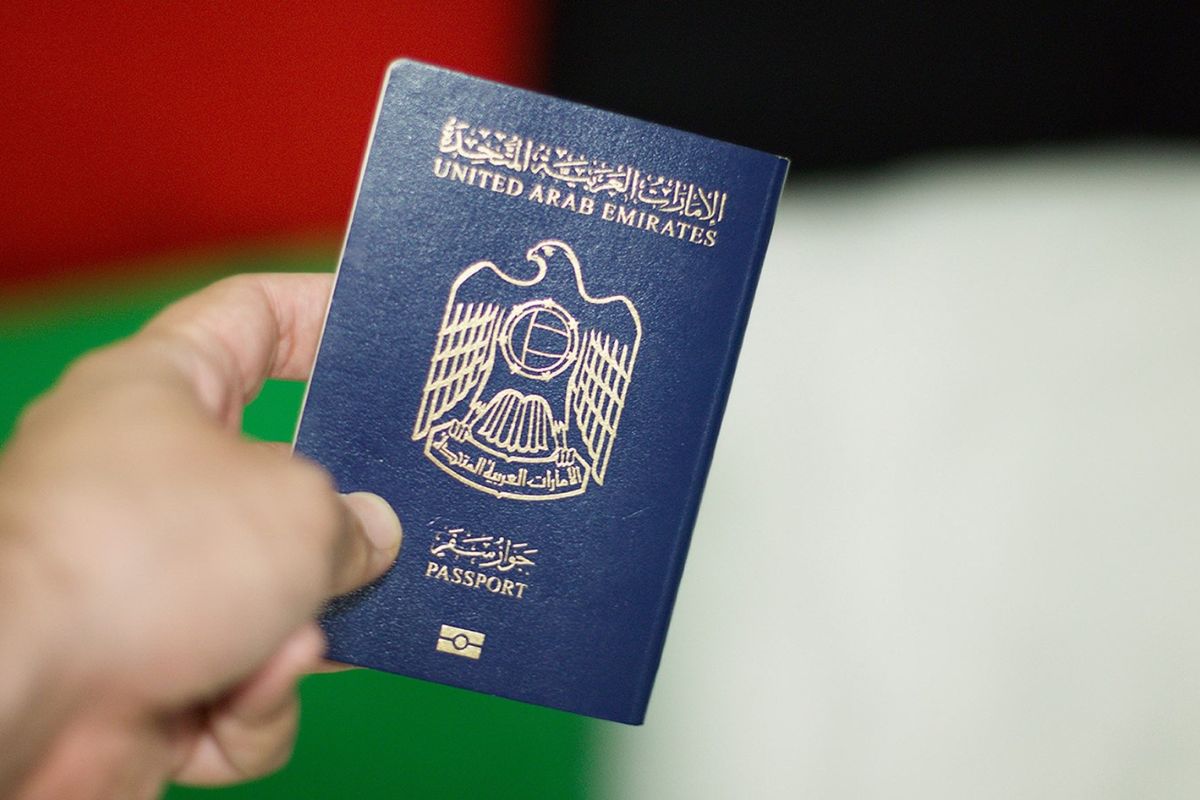Travellers departing from the UAE are facing an unexpected hurdle at check-in. Airlines operating out of Dubai, Abu Dhabi, and Sharjah have tightened passport checking standards to levels that frequent flyers find surprising.
A passport that appears perfectly acceptable to you may not meet the standards of airline staff or immigration officers. Even a small tear, stain, or chip can stop you from boarding.
Why Airlines Are Taking Zero Risks at Check-In
Airlines flying out of UAE airports are legally responsible for ensuring passengers meet entry rules. If immigration denies someone because of a damaged passport, the airline faces fines and must pay deportation costs.
Because of this risk, staff now inspect passports with extreme care. They’re trained to flag even small issues that could cause trouble later, regardless of your visa status or passport’s expiry date.
What Triggers Red Flags During UAE Passport Inspections
Immigration officers and airline staff flag several common types of wear that compromise passport security features:
Physical damage that raises concerns:
- Loose binding or pages separating from the spine
- Water stains or coffee marks, particularly on the photo page
- Frayed or torn corners
- Deep creases that affect embedded security features
- Visible smudges on critical pages
- Peeling the laminate covering the personal information
Technical issues that cause scanning problems:
- Scratched or non-functional embedded chips
- Damaged machine-readable zones
- Compromised holograms or security threads
- Any alteration to the biometric data pages
Why the UAE Takes Passport Damage Seriously
Two Categories of Passport Damage: Both Problematic
UAE immigration authorities classify damaged passports into specific categories, but both can cause travel disruption:
Partially damaged passports retain readable personal details and intact photos, but show surface damage like stains or torn pages. Even these supposedly minor issues can result in boarding denial.
Severely damaged passports have obscured photos or unreadable personal information, making them completely unsuitable for international travel.
UAE’s Enhanced Security Measures Drive Stricter Standards
Dubai airports now use advanced border control tech, including AI-powered corridors and Smart Gates, which process travellers quickly without physical checks. These systems depend on flawless passport chips and pages to function smoothly.
If a passport is damaged, scanners flag it for manual inspection. This slows the process and prompts officers to look more closely, treating irregularities as possible security risks or signs of tampering.
Prevention Strategies for UAE Travellers
Smart passport care prevents costly travel disruptions. Simple protective measures significantly extend document lifespan:
Daily protection habits:
- Use a dedicated passport holder or protective sleeve
- Keep the document away from moisture and extreme temperatures
- Avoid folding pages or inserting loose papers inside
- Handle the passport by its spine rather than grabbing pages
- Store it separately from items that might leak or stain
Pre-travel inspection checklist:
- Verify all pages close properly without gaps
- Check that embedded chips scan correctly (test at UAE Smart Gates if possible)
- Ensure photo pages show no water damage or discolouration
- Confirm machine-readable zones remain clearly visible
- Look for loose binding or separating pages
Bottom line
The message from UAE airports is clear: document condition matters as much as validity. In an era of enhanced security and automated processing, even minor passport wear can derail travel plans entirely.
